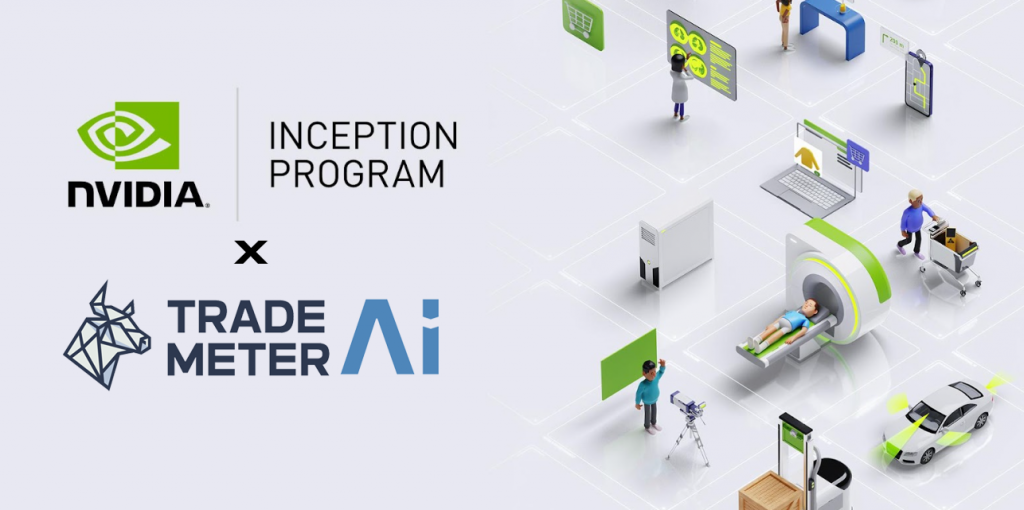Top 10 Tips For Backtesting Stock Trading From Penny To copyright
Backtesting is vital to optimize AI trading strategies, especially when dealing with volatile markets such as market for copyright and penny stocks. Here are ten key tips for making the most of your backtesting.
1. Learn the reason behind backtesting
Tip. Consider that the process of backtesting helps in improving decision-making by testing a particular strategy against historical data.
It’s a good idea to ensure your strategy will be successful before you put in real money.
2. Utilize high-quality, historical data
Tips. Make sure your historical data for price, volume, or other metrics is exact and complete.
Include information on corporate actions, splits, and delistings.
Use market-related data, like forks and halves.
What’s the reason? Data of top quality gives accurate results
3. Simulate Realistic Trading Conditions
Tip: Take into account the possibility of slippage, transaction fees and bid-ask spreads during backtesting.
The reason: ignoring this aspect could result in an overly-optimistic perception of the performance.
4. Make sure your product is tested in a variety of market conditions
Tip Try your strategy out using different scenarios in the market, such as bull, sideways, and bear trends.
The reason is that strategies perform differently in different conditions.
5. Concentrate on the most important metrics
Tips: Examine metrics, such as
Win Rate: The percentage of trades that have been successful.
Maximum Drawdown: Largest portfolio loss during backtesting.
Sharpe Ratio: Risk-adjusted return.
What are these metrics? They allow you to evaluate the risk and reward of a strategy.
6. Avoid Overfitting
TIP: Ensure that your strategy isn’t skewed to accommodate historical data:
Testing with data that has not been utilized for optimization.
Simple, robust models instead of complicated ones.
Incorrect fitting can lead to poor performance in real-world situations.
7. Include Transactional Latency
You can simulate delays in time by simulating the signal generation between trading and trade execution.
For copyright: Be aware of the exchange latency and network latency.
What is the reason? The impact of latency on entry and exit is most noticeable in fast-moving industries.
8. Conduct Walk-Forward Tests
Tip: Divide data from the past into multiple times:
Training Period: Optimize the method.
Testing Period: Evaluate performance.
This technique allows you to assess the adaptability of your approach.
9. Combine forward testing and backtesting
Tip: Test backtested strategies with a demo in an environment that simulates.
The reason: This can help confirm that the strategy works as expected under current market conditions.
10. Document and then Iterate
Keep detailed records of the parameters used for backtesting, assumptions, and results.
The reason: Documentation can assist improve strategies over the course of time, and also identify patterns.
Bonus How to Utilize Backtesting Tool efficiently
For reliable and automated backtesting utilize platforms like QuantConnect Backtrader Metatrader.
The reason: Modern tools simplify processes and reduce human error.
These tips will help you to make sure that you are ensuring that your AI trading strategy is optimised and tested for penny stocks, as well as copyright markets. View the recommended stock ai advice for more info including ai trading platform, using ai to trade stocks, investment ai, ai stock market, ai for copyright trading, ai day trading, ai for copyright trading, copyright ai trading, using ai to trade stocks, best ai stock trading bot free and more.

Top 10 Tips To Start Small And Scaling Ai Stock Selectors To Investment Predictions, Stocks And Investments.
It is wise to begin by using a smaller scale and then increase the number of AI stock selection as you gain knowledge about investing using AI. This will minimize the chance of losing money and permit you to gain a greater understanding of the process. This allows you to build a sustainable, well-informed stock trading strategy and refine your models. Here are 10 suggestions to help you get started and grow with AI stock picking:
1. Begin with a Small and focused Portfolio
TIP: Start with a concentrated portfolio of stocks you are familiar with or have researched thoroughly.
What is the benefit of a focused portfolio? It will allow you to become comfortable with AI models and stock selection, while limiting the risk of large losses. Once you’ve gained experience, you can slowly diversify or add more stocks.
2. Use AI to test a single Strategy First
TIP: Start with a single AI-driven strategy such as momentum or value investing, before branching out into a variety of strategies.
This will allow you to refine your AI model to suit a specific type of stock selection. If the model is working it is possible to expand to additional strategies with more confidence.
3. A smaller capital investment will reduce your risk.
Tips: Start investing with a the smallest amount of capital to lower risk and leave the possibility of trial and trial and.
The reason: Choosing to start small reduces the potential loss while you improve the accuracy of your AI models. It’s a chance to learn from experience without the risk of putting your money at risk early on.
4. Paper Trading and Simulated Environments
Tips: Use simulation trading environments or paper trading to test your AI stock-picking strategies and AI before investing in real capital.
Why: You can simulate market conditions in real-time using paper trading without taking financial risk. This lets you improve your strategy and models using data in real time and market movements while avoiding financial risk.
5. Gradually increase capital as you increase your capacity.
Tip: As soon as your confidence grows and you begin to see results, increase the investment capital by small increments.
Why? By slowing the growth of capital you are able to control risk and expand the AI strategy. If you scale AI too fast, without proof of results could expose you to risk.
6. AI models should be continually evaluated and enhanced.
Tips: Observe the performance of AI stock pickers on a regular basis and make adjustments based on new data, market conditions and performance measures.
Why: Markets change and AI models must be constantly modified and improved. Regular monitoring will help you detect any weaknesses and inefficiencies to ensure that your model is able to scale efficiently.
7. Create a Diversified Universe of Stocks Gradually
TIP: Begin by introducing a small number of stocks (e.g. 10-20) and then gradually expand the stock universe as you gain more data and insight.
What’s the reason? A smaller universe is more manageable and provides better control. When your AI model has proven reliable, you can increase the number of stocks in order to lower risk and boost diversification.
8. The focus should be initially on trading with low-cost, low-frequency
Tip: As you start expanding, you should focus on low costs and trades with low frequency. Invest in stocks that have low transaction costs, and less trades.
Reasons: Low cost low frequency strategies allow for long-term growth and help avoid the complications associated with high-frequency trades. This allows you to refine your AI-based strategies while keeping trading costs down.
9. Implement Risk Management Strategies Early On
Tip: Incorporate strong risk management strategies from the beginning, including Stop-loss orders, position sizing, and diversification.
Why: Risk management is crucial to protect your investments as you scale. Having clearly defined rules ensures that your model isn’t taking on any greater risk than you’re confident with, regardless of how it expands.
10. Iterate and learn from performances
Tips: You can enhance and tweak your AI models by incorporating feedback from the stock-picking performance. Focus on learning the things that work and what doesn’t by making small tweaks and adjustments in the course of time.
Why: AI models become better as time passes. Analyzing performance allows you to constantly improve your models. This decreases the chance of errors, improves predictions and expands your strategy on the basis of information-driven insights.
Bonus Tip: Make use of AI to automate data collection and analysis
Tip Recommendations: Automated data collection, analysis and reporting processes as you scale.
The reason: When the stock picker is scaled up, managing large quantities of data by hand becomes impossible. AI can help automate processes to free up time to plan and make higher-level decisions.
Also, you can read our conclusion.
You can reduce the risk and improve your strategies by beginning small, then scaling up. You can increase your exposure to markets and increase your odds of success by keeping a steady and controlled growth, continually developing your models and maintaining solid risk management strategies. To make AI-driven investments scale it is essential to adopt a data driven approach that evolves in time. Have a look at the top rated updated blog post on ai trader for blog recommendations including ai trading app, ai trading app, ai penny stocks to buy, ai predictor, ai trade, ai investing platform, best ai for stock trading, ai stock trading bot free, ai for investing, stock analysis app and more.
